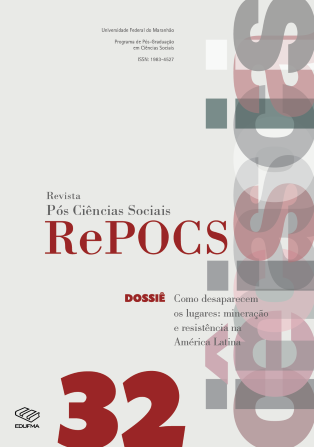Mulheres e homens na representação política – perfis sociais e trajetórias de parlamentares no Congresso Nacional
DOI:
https://doi.org/10.18764/2236-9473.v16n32p283-311Palavras-chave:
Mulheres, Homens, Parlamentares federais, Congresso Nacional, Representação políticaResumo
Frente à defesa normativa da participação das mulheres nos espaços de poder,
o texto analisa os mandatos de homens e mulheres no Congresso Nacional da 47ª à 54ª Legislatura. Ao todo, são 5860 casos, sendo 5527 de homens e 333 de mulheres. Pesquisas apontam crescente profssionalização das elites legislativas federais, expressa no acúmulo de cargos políticos ocupados até a chegada ao Congresso. Nesse processo, intensifca-se a competitividade
que, por sua vez, exige maior profssionalização parlamentar. Por essa lógica, o estudo pressupôs que também o contingente feminino é induzido a níveis mais altos de qualifcação política. A despeito dos obstáculos enfrentados para ascensão feminina ao poder, e considerando-se que a mobilização feminina pela igualdade política é ainda recente no Brasil, verifcou-se que as deputadas e senadoras têm graus elevados de qualifcação, embora inferiores aos dos
homens. Verifcou-se, ainda, que as mulheres, como os homens, chegam ao Congresso com experiências em postos políticos variados, conforme incentivado pela estrutura do federalismo brasileiro.
Palavras-chave: Mulheres. Homens. Parlamentares federais. Congresso Nacional. Representação política.
WOMEN AND MEN IN POLITICAL REPRESENTATION - SOCIAL PROFILES AND TRAJECTORIES OF PARLIAMENTARIANS IN THE NATIONAL CONGRESS
Abstract
Faced with the normative defense of women’s participation in places of power, the text analyzes the mandates of men and women in the National Congress of the 47th to the 54th Legislature. Altogether, there are 5860 cases, 5527 of men and 333 of women. Surveys point to the growing professionalism of federal legislative elites, expressed in the accumulation of political positions held until their arrival in the Congress of Chambers. In this process, competitiveness
is intensified, which, in turn, demands greater parliamentary professionalization. By this logic, the study presupposed that the female contingent is also induced to higher levels of political qualification. Despite the obstacles faced by women’s rise to power, and considering that women’s mobilization for political equality is still recent in Brazil, it has been found that women who take the role of Deputies and Senators have high degrees of qualification, even though inferior to men who also are in the same position. It was also verified that women, like men, arrive at the Congress with experiences in diversified political positions, as encouraged by the structure of Brazilian federalism.
Keywords: Women. Men. Federal Parliamentarians.National Congress. Political representation.
Downloads
Downloads
Publicado
Como Citar
Edição
Seção
Licença
Direitos autorais Revista Pós Ciências Sociais
Este obra está licenciado com uma Licença Creative Commons Atribuição 4.0 Internacional.


